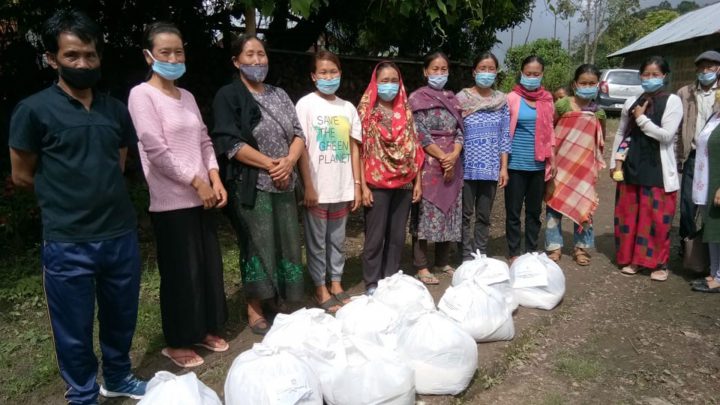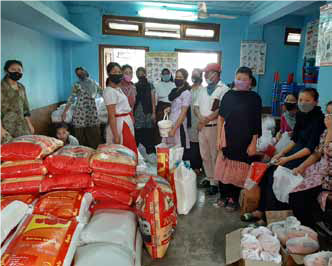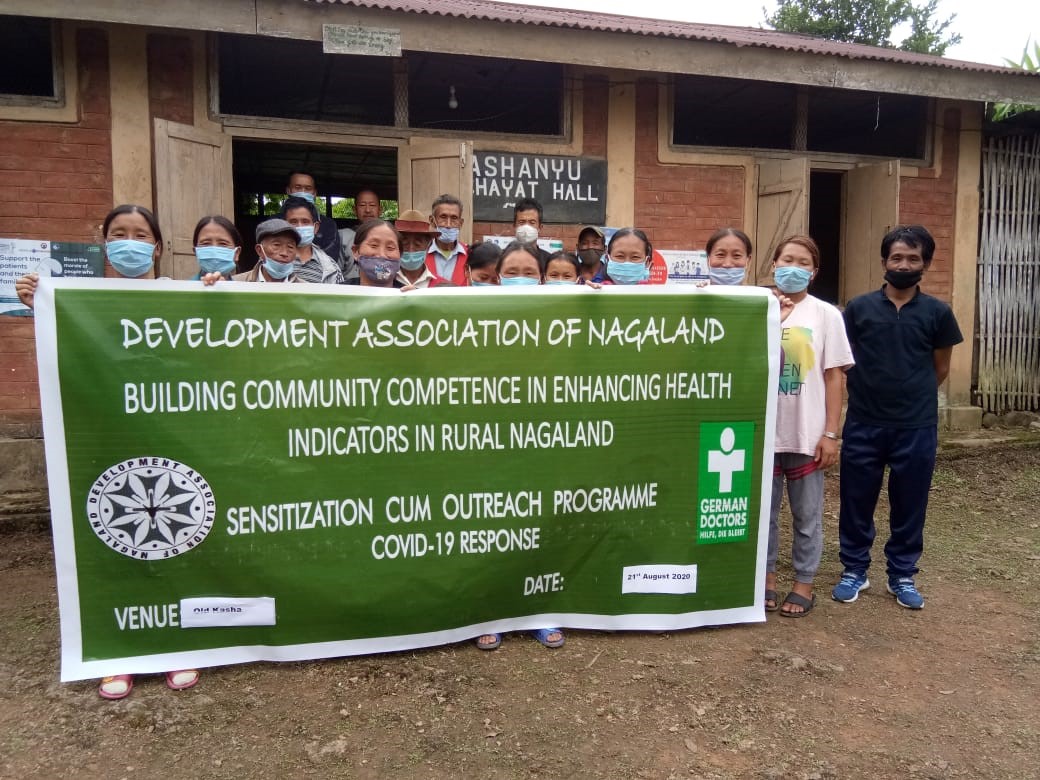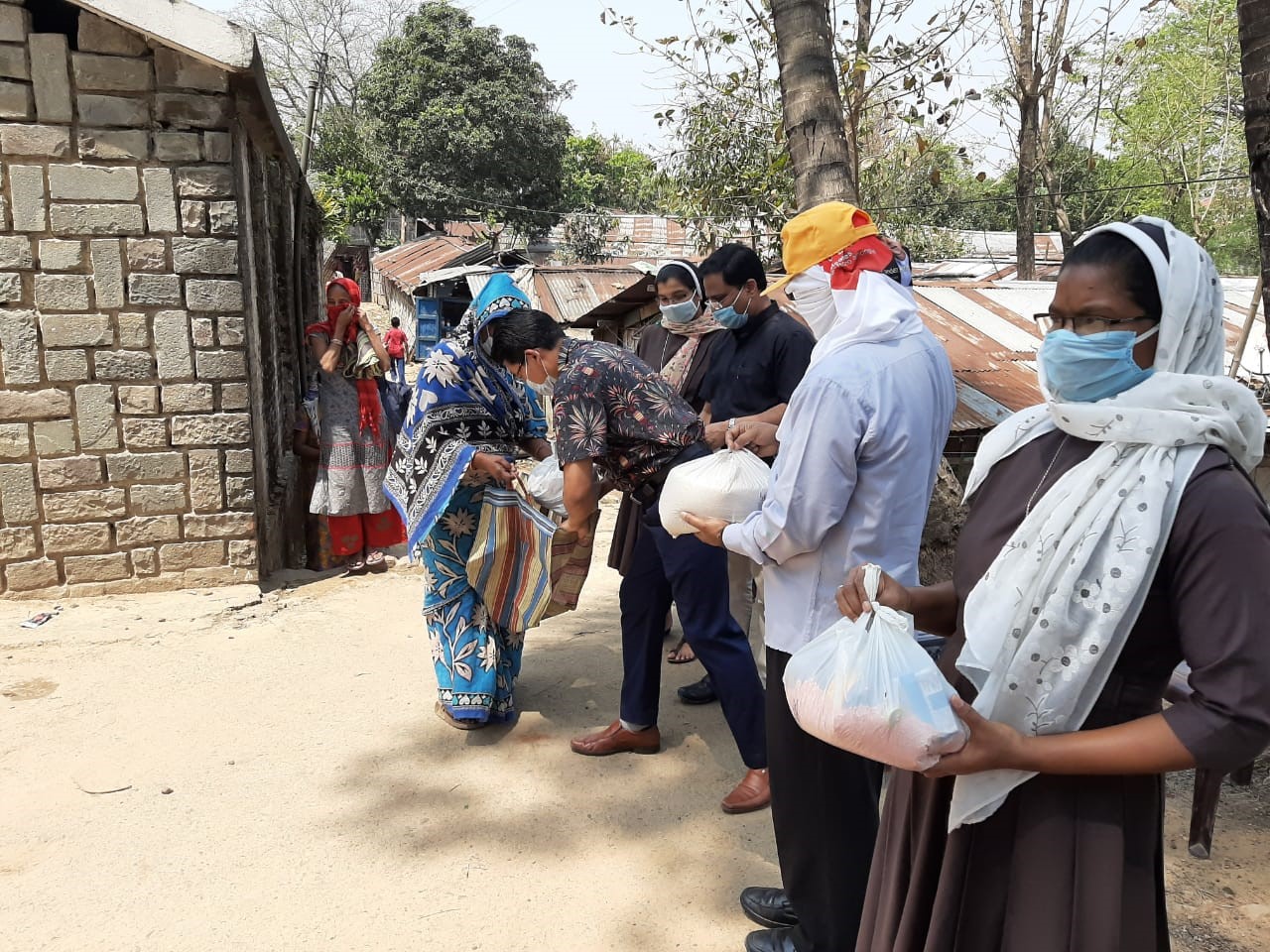Ritha Miasalhou of Nagaland, India shares her experience of contracting COVID-19 as a first responder. The total tally of COVID-19 positive cases and deaths worldwide, in terms of millions, is a daunting figure, if one has to go with the numbers. Ever since the first confirmed case of COVID-19 reported on March 25, there has been a steady spike of cases in Nagaland. As of August 22, State of Nagaland has 3635 confirmed cases with 1453 active cases, 2166 recoveries and 7 deaths.
Ever since the global COVID-19 pandemic reached Nagaland, first responders, especially the medical persons have made untold sacrifices, knowing well that they have a high chance of contracting the disease. When I tested positive for the virus, I was “surprised” but “it was not unexpected.”
“It comes at a time when one is at the verge of collapse because the work is so physically exhausting.” I was asymptomatic like the majority of the cases in Nagaland. I was surprised when I heard that I was tested positive but not worried because I know my body. All along, I was very sure that in the next test I would be tested negative and it so happened.” I was also grateful that I was informed of the infection otherwise I could have been a super carrier.
As is the case, I followed the Standard Operating Procedures (SoPs) for home isolation and institutional quarantine for 14 days and rested well besides eating well to keep my immune system strong. During the 14 days of home isolation, I had the opportunity to think and ponder about many things. I spent my time reading books, the Bible and exercising vigorously. I even tried yoga for breathing techniques, which helped me greatly to improve my health. I also spent my time in prayer, getting in touch with family and friends through phone and WhatsApp.
When I contracted the virus, my first worry was the thought of infecting others. I was also concerned about going back to work after my recovery. “How would people take it?” “I felt sorry for my family. Though I do not live with them, I had visited them. It affected not only my immediate family but their contacts also.” They all tested negative, but stayed in quarantine for 20 days.
My journey of recovery was not the pain of the disease but how people began to look at me. “People even refused to receive my parcel even after I tested negative. For instance, you are on this side of the road, and people just move to the other side of the road when they see me.” The isolation and taboo and the stigma attached to it surprised me. I do not blame anyone because I know it is all from the fear and the lack of awareness. It has been more than a month since my recovery and I strongly believe that I came out of it emotionally stronger.
I believe unfounded fear causes people to act irrationally and that is what is causing stigma. Dispelling the fears and apprehensions of the people is a great challenge for very community worker. There is no reason to be scared or be afraid of, but to understand the virus both rationally and medically and most importantly, follow all safety and precautionary measures. No doubt, COVID-19 is a highly infectious virus and seems scary but it has mostly to do with attitudinal behavior. As far as I think COVID-19 has come to stay, people need to learn to live with it. Being afraid is not the solution. It only creates more fear psychosis among the public. Perhaps people are scared and panic with the fact that this virus is not going to end anytime soon, coupled with lack of definite vaccine or medicine for the disease.
Despite the fear and stigma, I think the pandemic has brought out the best in people as well. “We had people who bought ration for us and left it at the gate,” I recall with gratitude. As a first responder, “it was something expected, and I was mentally prepared but for some, to grapple with their status alone is a big thing. In this situation, there is the urgent need for proper counselling, especially for people who have insecurity issues.
My experience helped me understand how stigma affects other people. “Now I am in a position to understand that it is so important not to stigmatise other people.” I also remember a response from one of my contacts, who said – “I am sorry you have to go through this, but then I am happy for this experience. I pray for front liners every day but because I do not know what people go through, I am not able to pray meaningfully for them. Now that I have experienced my share of that fear of being in contact with somebody who tested positive, I am able to see their pain and fear and I am able to pray for them more meaningfully.”
The nicest thing is that out of the experience, I am able to help other COVID-19 positive persons. “I have become like a counsellor,” because now they or their family call me for simple consultation. “They feel free to open up because they know I have been there and that I can be of help to them”. Thus, my personal experience with COVID-19 infection made me more empathetic and I came out much stronger. Now I pray daily for those infected and for their families which gives me lot of peace and confidence in Lord Jesus Christ.





